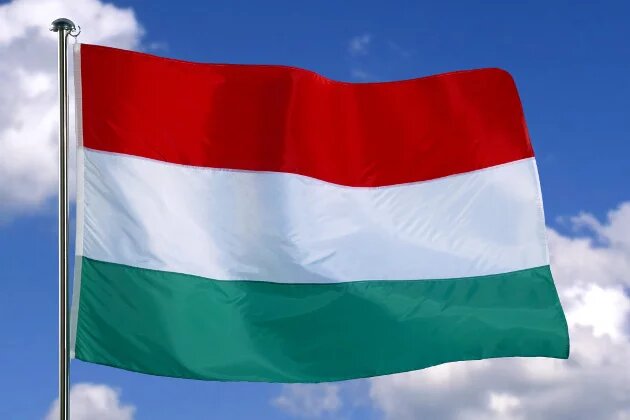

Gender policy, politics and resources in Hungary
Legal situation:
- Equal opportunities law
- Office For Women’s Issues
- Anti-discrimination law
- Laws on quotas, in particular in the political and economic sectors
- Further laws/legislative provisions and government programmes
- Current political discourse
Protagonists:
Academia:
Short description and evaluation
As part of its obligations for accession to the European Union (EU), Hungary has pursued the same course as other new candidate countries and integrated equal opportunities policies into its laws – less from conviction than from practical constraints. The traditions, values and language of the political arena are characterised by male norms and experiences. If women are to enjoy equal participation in politics, then further and more profound change must take place.
Hungary had a General Directorate for Equal Opportunities since 2002. Not limited to gender inequality, this institution was also responsible for disabled people and the Roma minority. The directorate’s function was originally assigned to the Ministry of Labour, but in 2003 a dedicated ministry was established and from 2004 Hungary had its first female Minister for Equal Opportunities.
The ministries were abolished by the new government elected in 2010, with some areas being reassigned to the Ministry of Labour. The majority of equal opportunities policies and legislation thus result from Hungary’s accession to the EU. However, because equal opportunities are not limited to gender issues but also include aspects relating to minorities and the disabled, an opportunity may have been missed to focus more strongly on gender equality.
In general, there is indifference to the issue of gender equality, and European guidelines are viewed as policies imposed from above. To date the EU has had only limited success with training programmes for women or campaigns to heighten awareness of violence against women. The NGO sector has been growing gradually since the collapse of communism; there are very few women’s organisations. Support of the organisations by local government has, however, increased. This indicates a lack of awareness of being discriminated on the part of women.
The Hungarian feminist movement currently consists of intellectuals in their mid-forties to late fifties, and it is concentrated in university centres. Above all, the male-centred and androcentric structure of political careers, men’s networks, and the officially promoted image of the housewife and mother hinder women from developing comprehensive initiatives (see Fodor 2004). There is no consciousness of or debates on the topic either in public or in politics; women themselves do not assume a gender perspective.
In power since 2010, the conservative right-wing governing coalition of the Fidesz – Magyar Polgári Szövetség (Hungarian Civic Union) and the KDNP (Kereszténydemokrata Néppárt – Christian Democratic People’s Party) has a two-thirds majority in parliament, thus allowing it to unilaterally alter constitutional laws. It remains to be seen to what extent they will make use of this option, in particular with regard to the limitation of the rights of individuals living outside the norm of heterosexuality.
National-conservative members of parliament (MPs) have already made it clear that they disapprove of ‘deviating’ life plans. All signs point to a concentration of power in Hungarian politics. Instead of the previous fourteen ministries, there will be only eight ruling the country in future, of which several will be so-called super ministries. The reduction in the number of ministers has been accompanied, among other things, by a reduction in the share of women in government to zero per cent. A dedicated department for women’s policy has been done away with completely. Environmental issues and policy have faced similar setbacks.
Last year the Socialist government in Hungary amended the legal provisions on pre-school childcare (Ovodai nevelési alapprogram, or the ‘Basic Programme for Pre-school Education’). These provisions specified that ‘the strengthening of gender stereotypes should be consciously avoided’ in pre-school education. This requirement resulted in protests by right-wing media and church representatives – claims of ‘a direct attack by the EU on Hungarian families’ or that the EU wanted to turn pre-school children into homosexuals. The wording of this law has been changed by the new government.
On the recommendation of the new state secretary for education, Rózsa Hoffmann, the government deleted the passage concerning the ban on gender stereotypes from the basic programme for pre-school education. Instead of the formulation which states that the strengthening of gender stereotypes should be consciously avoided in nurseries, the wording is now, ‘Nurseries shall not provide any space for the development of prejudices, neither of a social, gender or other nature’.
The ‘scientific’ basis for the criticism of gender mainstreaming in Hungary is obviously based on the work of German author Gabriele Kuby, who is on the extreme right of the political spectrum.
Some MPs in the ruling parliamentary party have already submitted plans for the amendment of family law, including obligatory marital fidelity and tougher preconditions for divorces. This ideological discourse on the family is most certainly not of benefit to the work of Vera Szigeti and her violence hotline. Szigeti, a feminist activist, psychologist and staff member of the NANE violence hotline, explains: ‘In addition to financial worries, many women who leave their violent partners, particularly in rural areas, are already afraid that they will no longer be respected and are ashamed.’
Krisztina Morvai is the female figurehead of Jobbik (‘The Movement for a Better Hungary’) and was elected to the European Parliament in 2009. She was formerly considered a feminist and campaigned for directive laws for abusive husbands. Since 2006 the lawyer has been assisting the extreme right-wing diatribes of the Jobbik party with intellectual argumentation and human rights discourses. She presents herself as a self-confident woman, emphasises her role as a mother and also enjoys appearing in the uniform of the paramilitary Hungarian Guard.
It seems to be taken for granted that the Hungarian Guard is open to women, and a surprising number of women march in the ranks of their male comrades. While it is true that Jobbik’s electoral manifesto expresses concern for the family, its populist image of the family conjures up very few of the usual issues relating to gender roles. Its hate-filled rejection of homosexuality is, however, all the more virulent.
Legal situation
In May 2010, the Hungarian government passed a new national strategy on equal opportunities for women and men for the period 2010 to 2021. In addition to other key items, the strategy is to investigate the specific difficulties of female migrants on the Hungarian labour market and to improve their chances of employment. Adequate provisions for traumatised or tortured female refugees living in Hungary are also a priority of the government.
Equal opportunities law
The Hungarian legal regulation is essentially harmonised with the European norms. The constitution, the Labour Act and other laws contain the prohibition of different forms of discrimination, including that of gender discrimination. In Hungary the situation of women is somewhat similar to that of women in the EU member states, though Hungary’s women face a different labour market situation due to the country’s distinct historical development.
The Hungarian National Machinery for Women’s Equal Status was established in September 1994 by a government decree. It started its work at the end of 1995, after the Beijing Conference. Originally, it was called the Department for Policy on Women and was established within the Ministry of Labour. Most NGOs have suggested that this decision was due mainly to the fact that the labour minister was the only female in the cabinet at the time.
Then, in 1996, the name was changed to the Department for Equal Opportunities. Recently, after the change of government following the May 1998 elections, the Ministry of Labour ceased to exist and was substituted with the Ministry for Social and Family Affairs. The Department for Equal Opportunities was renamed and reorganised; it is now called the Section for the Representation of Women and is located within the Ministry of Social and Family Affairs. The head of the section is an expert in social policy. Most of the former employees were transferred over and for the most part are carrying out their former tasks. The section does not have the authority to formulate government policy on gender equality, even though it has been given the task of initiating legislative action. Its main activities are the same as those of the former department. It functions as an opinion-maker with respect to government policy at the national and the local level. In the past this approach has not proven to be very effective.
The government now is going to create a Council for the Representation of Women, consisting of the deputy state secretaries of the eleven ministries, representatives from women’s NGOs and experts. Its tasks will be to give an opinion on provisions of law and government action plans and to initiate new programmes related to equal opportunities for women. It seems that in the future the opinions and needs of NGOs will play an important role in the formulation of the section’s policy. The section also intends to create local committees of NGOS to cooperate with them in the countryside to implement gender policies. (source: Karat Coaliton)
Amt für Frauenfragen:
This body was established in 1996 as the Office for Women’s Policy; later in the same year it became the Office of Equal Opportunities. Initially placed under the Ministry of Labour, the office was reorganised in 1998, located within the Social Community Relations Department at the Ministry of Social and Family Affairs and renamed the Office for Women’s Issues. Despite these changes, the personnel and tasks of this administrative body have remained more or less unchanged. The office’s objective is the advancement of women in Hungary.
Inter-Ministerial Committee:
This body was set up in the course of the implementation of the Beijing Platform for Action. It held two sessions during this period and coordinated the administrative measures created by government to ensure equal opportunities for women. The committee was abandoned with the establishment of the Council for Women’s Issues in 1999. The heads of department of each of the ministries and the prime minister’s office are the members of the newly formed committee (see Council for Women’s Issues).
An anti-discrimination law was passed in 2004, but instruments for its realisation were not developed and/or fell under the responsibility of the Department for Equal Opportunities – which was abolished by the new government.
The Ministry of Justice drew up the text of the Bill of Equal Treatment and Equality of Chances in line with the concept agreed on by the government in the spring of 2003. The bill’s main regulations can be summed up as follows:
- A general act regulates realisation of the requirements of equal treatment, which also provides harmonisation with the laws of the EU in this field.
- The provisions of the act extend to the public sphere and the relationships regulated by civil law.
- The act provides general definitions regarding negative discrimination.
- The act deals with some sectoral anti-discrimination issues.
- In any case of breach of the rule of equal treatment, the burden of proof is reversed.
- In any case of breach of the rule of equal treatment, there is a possibility of public action.
- The act provides the coherency of the legal system in relation to the requirement of equal treatment.
After reviewing the practice of negative discrimination, the National Programme for Equality of Chances shall define those measures that will help foster equal opportunities.
Legislation alone is not enough to eradicate everyday discrimination. Programmes financed from the central government’s budget are needed in order to achieve the goals set down in the bill, and in order to put legal theory into practice. This should be provided by the National Programme on the Equality of Chances, which incorporates those programme components meant to achieve the goals stated in the Act on Equal Chances and Equal Opportunities.
Hungarian law prohibits the breach of the ‘Equal Payment for Equal Work’ principle. According to the first line of the constitution’s paragraph 70./B, ‘An individual is entitled to receive equal payment for equal work, without any discrimination.’ The fifth paragraph of the Labour Act also prohibits discrimination. Thus, updated Hungarian law guarantees gender mainstreaming between men and women, and obliges employers to ensure equal treatment.
The General Prohibition of Gender Discrimination is fixed in the constitution in the first line of paragraph 66. In consideration of the law, the Republic of Hungary guarantees gender mainstreaming between men and women with respect to citizenship, politics, economics, society and culture. The Labour Act emphasises the prohibition of discrimination of men or women in employment.
Both the FIDESZ/KDNP and Jobbik are declared opponents of the Partnership Act for Same-Sex Couples, which came into force in July 2009. FIDESZ/KDNP has repeatedly announced that the act will be repealed – the above-mentioned proposed amendment to family law cites this as an urgent matter.
Laws on quotas, in particular in the political and economic sectors
There was an informal quota provision for women in parliamentary office under the Socialist government. However, this target was applied arbitrarily, and was abolished in 1985. Since then, women’s parliamentary representation has shrunk dramatically. The Socialist Party has a 20% quota for women for all party offices.
In October 2007 the junior ruling party, the SZDSZ, proposed a quota for women in parliament. The initiation of quota regulations appeared promising; they were not, however, implemented. On the contrary, the proportion of women in government office today is 0%.
Further laws/legislative provisions and government programmes
Under the project Gender Equality in Hungarian Legislation, several seminars were held for legal experts, labour inspectors and trade unions. Participants also prepared a textbook and various information materials on equal opportunities for women and men and on possible legal remedies. The programme also set up a toll-free telephone number to provide legal assistance in cases of discrimination at the workplace.
The project Equal Opportunities for Women and Men on the Labour Market studied the labour market situation of women between 1986 and 1996, focusing in particular on differences between men’s and women’s wages. The Managing E-Quality and Train the Trainer (MEQ – TTT) programme provides training materials for managers in the private and public sectors and encourages the creation of a gender-equal and family-friendly workplace.
Since the change of government, current political discourse has been characterised by a backlash against legislation passed and existing movements. The current agenda does, however, address the following issues:
- domestic violence
- integration of women with a migration background into the labour market
- the Partnership Act (though with a tendency towards de-liberalisation)
Protagonists
NGOs: Parties, organisations within civil society
The range of NGOs representing women’s concerns and issues is relatively diverse in Hungary, but not all representatives of this diversity have equally loud voices in the policy debates. In the Hungarian context, NGOs for women play an indispensable role, leading the way ahead of the government towards the enforcement of women’s rights and gender equality.
The main NGOs with an active policy-making role, particularly in the important policies related to gender equality in recent years (passing the AET, the debate on domestic violence and the debate on prostitution), are: NANE (Women Against Violence Association), the Habeas Corpus Working Group and the Women’s Rights and Children’s Rights Research and Training Center Foundation. The Foundation for the Women in Hungary (MONA) assumes a significant role especially in awareness-raising work.
Several other NGOs conduct small projects related to gender equality. Hungarian trade unions and their women’s organisations have also been pioneers in this field (especially the women’s branch of the MSZOSZ trade union). Moreover, the establishment of the Hungarian Women’s Lobby in October 2003 is an important step towards empowering women’s NGOs by bringing many of them together under one institutional umbrella.
Mona-Foundation For The Women Of Hungary (Hungarian, English):
MONA’s home page is an excellent resource providing numerous links, information and in-depth articles.
The foundation sees its goals in the context of Hungary’s particular historical development. Before Hungary became a parliamentary democracy in 1989, women lived in an artificially emancipated society. Women had to join the labour force, but had virtually no opportunities for involvement in the real centres of power in management and politics.
In addition, they were faced with a double burden: women were the principal bearers of responsibility for housework and childcare. While there were many changes to social, political and economic structures in the final years of the post-communist transition, women were not able to benefit from them; to the contrary, their social status deteriorated. MONA links theory and practice – the education of women as regards empowerment strategies for participation in a democratic society
- by improving women’s economic power
- by means of job-search strategies and training courses, political activities in all fields of administration and government
- by making use of lobbying and the media, and preparation for the labour market of the 21st century
It also supports research on women’s issues at national and international level, such as:
- carrying out studies on women’s options for, and problems with, political participation
- initiating and organising studies on women’s employment
- organising conferences, congresses and other professional exchanges of ideas
NANE! women for women and against violence (Hungarian, English)
Hungary has a Hungarian Women’s Party (Magyar Nök Pártja). In its manifesto, it demands that women and men work together in all areas of society. It distances itself from feminism and other radical movements. Its political agenda is not well-defined and differs very little from that of the Socialist Party (no website).
The lesbian organisation Lábrisz (Hungarian, some English) and the gay organisation Szimpozion (Hungarian)organise a programme for school classes entitled Melegség és Megismerés (Introducing Homosexuality). Within its scope two activists relate their own personal stories as a way to open up broader discussion and clarify misunderstandings relating to terms such as homophobia, transvestism and transgender. The programme is concerned not just with homosexuality but also with sensitising participants in general to discrimination issues.
Eva Fodor
Associate Professor Director of Doctoral Studies
E-mail: Fodore@ceu.hu
Office: Zrinyi 14. room 507/B
Phone: (36-1) 327-3000 ext. 2077
Fax: (36-1) 327-3296
Katalin Koncz
E-mail katalin.koncz@uni-corvinus.hu
Office for the Equality of Chances (Ministry of Social Affairs and Work):
Szociális és Munkaügyi Minisztérium (Hungarian, English)
Esélyegyenlöségi Szakállamtitkár (Department of Equality of Chances)
Alkotmány u. 3
1054 Budapest
Endre M. Sík
E-mail: eselyev2007@szmm.gov.hu
Phone.: +361 475 79 18
Fax: +361 332 67 54
The website of the Office for the Equality of Chances provides important information on the subject of equality in general terms (especially on the subject of work and the ethnic minority of Romanies). Important documents relating to government law and directives can be obtained on the website. But: There is no dedicated subject of gender equality.
The website does not offer information on current programs and contact details of NGOs working in the field of gender equality.
Since the subject of gender equality has become a ministry without budget the focus of the governmental Office for the Equality of Chances is to raise awareness. Furthermore, the department has initiated campaigns on the topics of: domestic violence, alternative male role-models, competition for the most family friendly work-place.
In the area of monitoring and evaluating the implementation of legislation and action plans not much has happened. Government opinion of the Office for the Equality of Chances on the main topics of anti-discrimination law and domestic violence was non-existent. No statement were given by the minister on parliamentary discussions.
On the topic of equality of chances in the work-place a document was published in 2005. Apart from this document the government website does not produce any results when searching for the keyword 'gender equality' and no links to individual ministries are given.
- The Ministry of Justice comprises information on domestic violence (no further links are provided)
- 'Houses for the Equality of Chances' are intended to improve the level of information on the topic. No one knows how this is going to be accomplished and if there are going to be enough financial resources available.
- no campaigns or initiatives on the part of the Ministry of Social Affairs and Work or trade unions were launched in order to inform women on their rights regarding to equality issues and sexual harassment
Academia
University
Department Of Gender Studies Central European University, Budapest (Hungarian, English):
Phone: +361 327-3034
Fax : +361 327-3296
Email: gender@ceu.hu
The information provided by Central European University’s Department of Gender Studies is very detailed and interesting. Unfortunately, there are very few links to other institutions and organisations.
Budapest University offers a master’s degree in Critical Gender Studies and a European master’s in Women’s and Gender Studies.
Description of the status of source material:
The relevant websites can be accessed quickly by running a search with the keywords ‘women’s rights’ and ‘feminism’ (largely thanks to the KARAT network). For those who do not read Hungarian, however, it is difficult to make any further progress, as all of the websites are in Hungarian and offer only minimal English-language content.
The home page of the lesbian organisation Labrisz is an excellent source for becoming familiar with Hungary’s NGO scene in the field of equal opportunities and anti-discrimination. It also has pages in English.
Citation of relevant sources:
Internet addresses were provided directly in context.
Other Web addresses of interest
Pusztaranger (German)
Fodor, Éva. ‘Vorzeige-Parlamentarierinnen und Kleinstadt-Bürgermeisterinnen: Die Partizipation von Frauen in der ungarischen Politik seit 1990’ [Showcase Female Parliamentarians and Small-Town Mayoresses: The Participation of Women in Hungarian Politics Since 1990], in Handbuch Politische Partizipation von Frauen in Europa [Handbook of Political Participation of Women in Europe], eds. Beate Hoecker and Gesine Fuchs, vol. 2. Wiesbaden: VS Verlag für Sozialwissenschaften, 2004.
This study was conducted by Tanja Berger und Pamela Dorsch and comissioned by the Gunda Werner Institute of the Heinrich Böll Foundation in 2010.
All images, except marked otherwise: Public Domain CC0

